Iran Allows IAEA Access To Nuclear Workshop, Tehran Website Says
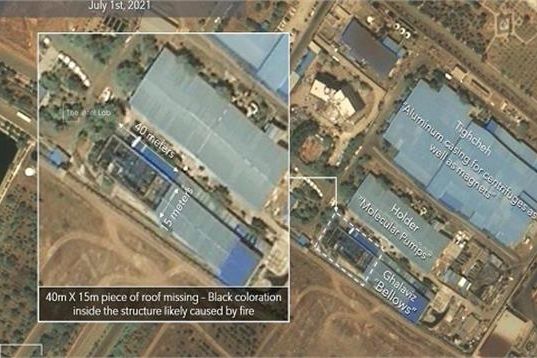
Iran has allowed the UN nuclear watchdog, the IAEA, to replace its cameras at a centrifuge parts workshop, according to a website affiliated to Iran's top security body.

Iran has allowed the UN nuclear watchdog, the IAEA, to replace its cameras at a centrifuge parts workshop, according to a website affiliated to Iran's top security body.
"Due to the completion of judicial and security checks on the affected cameras, as well as the IAEA's steps to condemn the act of vandalism against the Tessa complex, Iran has voluntarily authorized the agency to replace the damaged cameras with new ones," Nournews said.
Iran limited monitoring access by the IAEA, to its nuclear facilities in February and later refused to allow the replacement of cameras at the Karaj facility that manufactures uranium enrichment centrifuges. Just on Tuesday the head of Iran’s Atomic Energy Organization, Mohammad Eslami, had said Tehran would not allow access to the Karaj facility, which was the target of a drone attack earlier this year.
The news came as the three European countries, the United Kingdom, France and Germany that are signatories of the 2015 nuclear agreement with Iran repeatedly criticized Tehran in recent days for being inflexible in talks aimed at restoring the JCPOA and making “maximalist” demands.
Iran needs to reach an agreement over limiting its nuclear program with the West if it wants crippling economic sanctions imposed by the United States to be lifted.
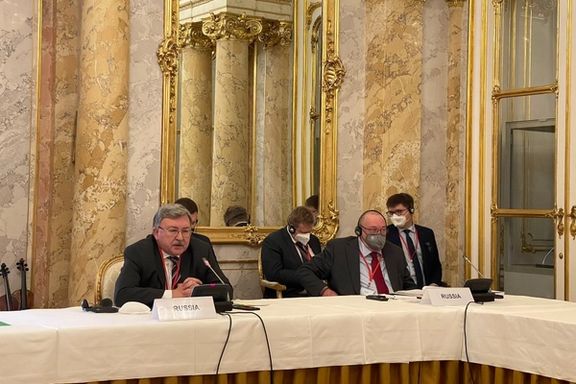
Three European powers warned Tuesday evening that chances of reviving the 2015 Iran deal were quickly diminishing due to Tehran’s “continued nuclear escalation.”
This was the second statement criticizing Iran in one day from France, Germany and the United Kingdom, the three European powers that signed the JCPOA (Joint Comprehensive Plan of Action) alongside China, Russia and the United States in 2015. The US left the deal in 2015 and unilaterally imposed ‘maximum pressure’ sanctions on Iran.
"Iran’s continued nuclear escalation means that we are rapidly reaching the end of the road," the E3 statement said. Tehran had accelerated “the pace of most sensitive violations of the JCPOA,” curtailed monitoring by the International Atomic Energy Agency (IAEA), and left “the international community with less knowledge of the status the Iranian nuclear programme [sic].” This all undermined “international peace and security and the global non-proliferation system.
The statement was issued ahead of the United Nations Security Council discussion of its resolution 2231, passed in 2015 to endorse the JCPOA and which enhanced inspections and required the lifting of most international sanctions on Iran.
Since the US left the JCPOA in 2018 and Iran began to exceed JCPOA nuclear limits the following year, the E3 has placed onus on both the US and Iran to revive the agreement. But Tuesday’s statement made no reference to US ‘maximum pressure’ sanctions.
‘Robust response’
The E3 insisted they remained committed to implementing the JCPOA, and placed responsibility on Tehran to choose between the "collapse of the JCPOA and a fair and comprehensive deal, for the benefit of the Iranian people and nation" while the diplomatic door was "firmly open."
In her speech to the UNSC, Britain's ambassador Barbara Woodward alleged that Iran had introduced "new maximalist demands," many beyond the JCPOA, since talks were suspended in June for Iran’s presidential election.
"If Iran continues its current path of nuclear escalation, in weeks, not months, it will be responsible for collapsing the JCPOA and provoking a serious crisis, which would require a robust response from this Council," she said. The US and Israel have recently been flagging up possible military action against Iran, but Russia and China would be very unlikely to endorse this at the UNSC.
Ali Bagheri-Kani, Iran's lead negotiator in Vienna, tweeted Tuesday that the Europeans were engaged in a "blame game habit instead of real diplomacy" while Iran was "working constructively and flexibly to narrow gaps."
Russia’s ambassador to the International Atomic Energy Agency Mikhail Ulyanov quoted Bagheri-Kani's tweet while insisting that all participants in Vienna talks should see diplomacy as a two-way street. "Of course I address these words first of all to myself," he tweeted.
Gaps with IAEA ‘narrow’
Aside from the Vienna talks and the UNSC meeting, Tehran said Tuesday that gaps with the International Atomic Energy Agency (IAEA) over access had narrowed. “I don't want to go into details, but I can anticipate that the two sides reach an understanding soon,” Saeed Khatibzadeh, foreign ministry spokesman told Press TV.
Nournews website, which is affiliated to the Supreme National Security Council, later reported that Iran and the IAEA had reached agreement over the agency replacing and servicing equipment at the Karaj manufacturing plant after Tehran had completed security checks, which followed June’s attack on the facility.
Earlier in the day, Mohammad Eslami, head of the Atomic Energy Organization of Iran, reiterated that IAEA access to a centrifuges manufacturing plant at Karaj was not required under Iran’s safeguards agreement of the Nuclear Non-Proliferation treaty (NPT). IAEA chief Rafael Mariano Grossi has said access to service monitoring equipment was agreed by Tehran in September in the latest temporary arrangement following Iran’s decision early in 2021 − following attacks on its nuclear sites and continuing US sanctions − to limit IAEA access to that required under the JCPOA.
"When they do not fulfill their commitments and impose harsh, illegal and unjust sanctions on Iran and expand them every day, there is no reason to force us to comply with them,” he said. “We act within the framework of IAEA safeguards and NPT and do not accept anything other than that.”
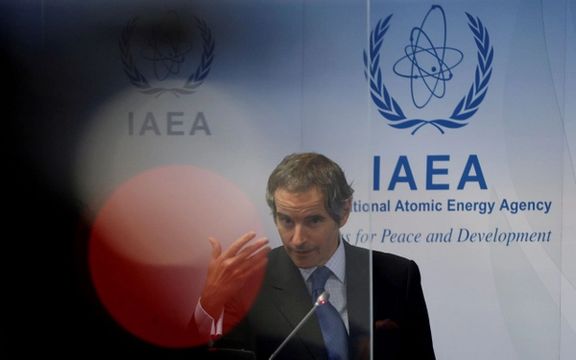
Rafael Grossi, the UN nuclear agency’s chief, has told Associated Press Tuesday that his agency’s picture of the Iranian atomic program was becoming “blurred.”
Speaking in Abu Dhabi, Grossi, head of the International Atomic Energy Agency (IAEA), said the agency faced a special problem with restricted access to the Karaj manufacturing plant, which was hit by a drone strike in June.
The IAEA chief said this would remain challenging even if better access were restored. “When we start to put that jigsaw puzzle together again there might be gaps,” he explained. Karaj’s role in producing “parts for centrifuges, radars, tubes,” Grossi continued, was “essential for the rest of the process, for the enrichment itself.”
Diminishing access
Grossi has argued for some time that Iran has backtracked over Karaj since he reached an arrangement in Tehran September over agency inspectors’ access to service monitoring equipment, including cameras.
September was the latest in temporary IAEA-Iran understandings since Tehran decided early in 2021 to limit inspections more or less to those required under the Nuclear Non-Proliferation agreement. Iran has justified limiting access to Karaj in terms of a security review following the drone strike, which was widely attributed to Israel.
The IAEA chief’s remarks to AP came as Iran’s talks with world powers continued in Vienna with the aim of reviving the lapsed 2015 nuclear deal, the JCPOA (Joint Comprehensive Plan of Action).
While the IAEA has no direct role in the talks, it would have responsibility for monitoring the JCPOA once revived. In the meantime, the agency is the main source of information on Iran’s nuclear program, both from its inspectors and as the conduit for direct Iranian reports.
Grossi told AP that the IAEA’s ability was diminishing to provide comprehensive information, including over the manufacture at Karaj of centrifuges, the devices used to enrich uranium.
Iran’s use of more advanced centrifuges than those permitted under the JCPOA has emerged as a bone of contention in talks, as more advanced models allow quicker and more efficient enrichment of uranium. Mikhail Ulyanov, Russia’s representative in the Vienna talks and its IAEA ambassador, said Monday that centrifuges were an “acute issue” in negotiations.
Grossi told AP that the agency needed a clear idea of centrifuges production. While this is not required as part of Iran’s ‘safeguards commitments’ under the NPT, which are limited to direct nuclear work, it was possible under the JCPOA.
‘An illusion’
“If the international community through us, through the IAEA,” Grossi told AP, “is not seeing clearly how many centrifuges, or what is the capacity that they may have, then…what you have is a very blurred image…an illusion of the real image, but not the real image…It sounds technical and boring, but it's very important."
Grossi noted that his contacts since September had shown the new government under President Ebrahim Raisi (Raeesi) had “a different take from the previous administration.” As well as “strong views about the interactions that Iran has been having with its counterparts within the JCPOA, and beyond,” Grossi said, “the president himself and the people around him have been saying very clearly that they have views about the nuclear program.”
Grossi said he wanted to tell Iran there was "no way around" the IAEA and its inspectors if Iran wanted to be "a respected country in the community of nations." He stressed: "We have to work together.”
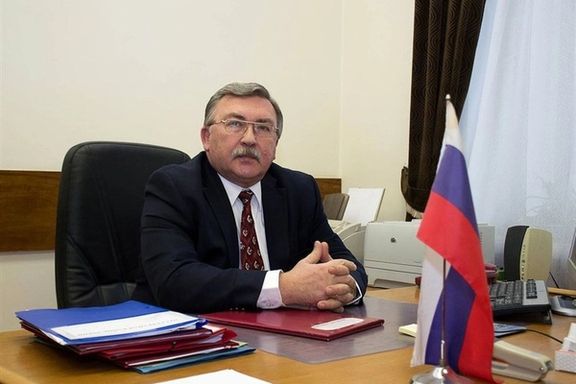
Russian envoy to the Vienna nuclear talks has revealed that Iran's centrifuges, devices used to enrich uranium, are an "acute issue" in the negotiations.
"There is an option to transfer them abroad, there is an option to destroy them,” Mikhail Ulyanov was quoted by the official news agency Tass Monday as saying. “There is also an option to stockpile them in Iran and put them under IAEA guarantees, seal them and so on. We can agree on what option to use.”
Ulyanov revealed that “this is only one of tens of issues that we will have to resolve.” Talks were progressing "not too fast", but still "moving forward," he said.
Tehran has yet not reacted to Ulyanov's disclosure. In a tweet Tuesday, top negotiator Ali Bagheri-Kani said European negotiators – those of France, Germany, and the United Kingdom – were persisting in a "blame game habit instead of real diplomacy."
The day before, senior diplomats from the ‘E3’ offered a pessimistic evaluation of the talks in a statement. Neither the E3 statement nor the Bagheri-Kani tweet referred to discussions about centrifuges, and the E3 statement seemed to contradict any notion, like Ulyanov’s, that the talks had reached nitty-gritty issues.
"We proposed our ideas early and worked constructively and flexibly to narrow gaps; diplomacy is a two-way street,” Bagheri-Kani wrote. “If there's real will to remedy the culprit's [the US] wrongdoing, [the] way for [a] quick good deal will be paved.”
The E3 statement claimed "time was running out" to rescue the JCPOA, which would become "an empty shell" as they had not yet "not been able to get down to real negotiations" with Iran.
US Secretary of State Antony Blinken said Tuesday at a news conference in Indonesia that while pursuing diplomacy, Washington was "actively engaging with allies and partners on alternatives." This followed a flurry of reports on US discussions with Israel on attacking Iran. Given it left the JCPOA in 2018, the US is involved in the Vienna talks indirectly.
According to Iranian and Russian readouts of a telephone call Monday, Russian foreign minister Sergey Lavrov told Iran’s Foreign Minister, Hossein Amir-Abdollahian, that all US sanctions are “inconsistent with the JCPOA” should be removed.
Iranian government spokesman, Ali Bahadori-Jahromi said Tuesday that the “West” wanted “to keep and even increase sanctions.”
Spinning centrifuges
Iran’s use of centrifuges has reportedly been a central issue in the talks that began in April. The JCPOA limited Iran to 6,100 centrifuges, nearly all first-generation IR-1s.
Since the US left the deal and imposed ‘maximum pressure’ sanctions, Iran has introduced more advanced and efficient centrifuges including the IR-4, IR-5, and IR-6, and used them to enrich and stockpile uranium enriched to 20 percent and 60 percent. Under the JCPOA Iran enriched only to 3.67 percent.
But returning to JCPOA limits has been complicated by Israel attacks that destroyed older centrifuges – some have claimed that 90 percent of centrifuges at the Natanz plantwere unusable – that Iran has replaced with more advanced ones. Back in April, then president Hassan Rouhani made great show of inaugurating new centrifuges following the “terrorist” strikes.
On the third day of the latest round of talks beginning November 29, the International Atomic Energy Agency said Tehran had at the underground Fordow facility started enrichment to 20 percent purity with a cascade of 166 advanced IR-6 machines.
Iran's 1044 IR-1 centrifuges, set up in six cascades, are still being used for 20 percent enrichment. According a later IAEA report of December 1, another 94 IR-6 machines have been installed at Fordow but are not yet operating.
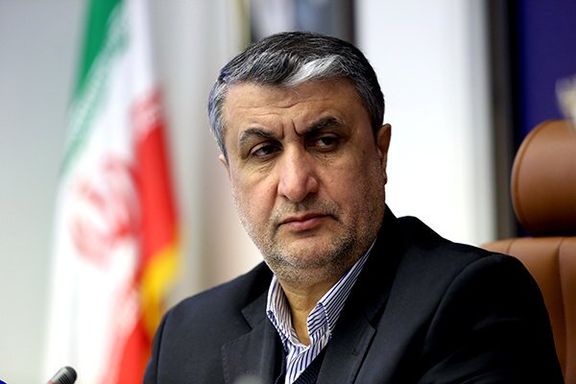
Iran's nuclear chief said Tuesday demands by the UN nuclear watchdog IAEA for access to a workshop making centrifuges are beyond NPT and unacceptable to Tehran.
He was referring to an installation in Karaj, west of Tehran that was the target of a sabotage attack in June, IAEA monitoring cameras were damaged in the incident and Iran has been refusing access fro the UN watchdog to replace the equipment.
"Karaj ... is outside of safeguards ... We act within the framework of safeguards and NPT (nuclear Non-Proliferation Treaty) and do not accept anything else," the head of Iran's Atomic Energy Organization, Mohammad Eslami, said.
Eslami said that monitoring in the Karaj facility is related to the 2015 nuclear agreement, JCPOA, and when the United States has withdrawn from the agreement and imposed sanctions, Iran has no reason to cooperate.
The IAEA has said that without access to the Karaj facility, it cannot guarantee of being fully informed about Iran’s nuclear activities.
Nuclear talks underway since April in Vienna to restore the JCPOA have so far failed to make breakthrough. The United States and its European allies have become pessimistic over Iran’s negotiating posture.
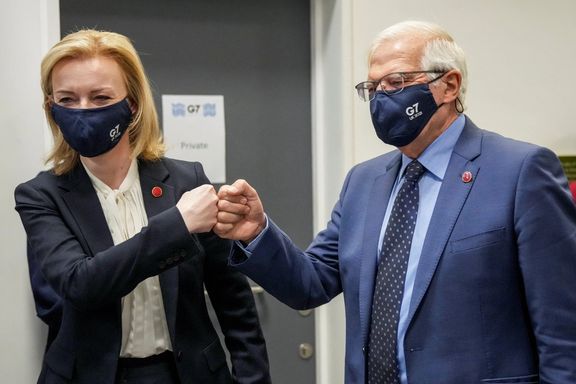
Western diplomats say they still have not had real nuclear negotiations with Iran, and unless there is swift progress that deal will soon be "an empty shell.”
Diplomats from the United Kingdom, France and Germany, forming the E3 group in the Vienna talks with Iran to revive the 2015 deal, expressed their concerns in a joint statement on Monday.
"As of this moment, we still have not been able to get down to real negotiations," the statement said. "Time is running out. Without swift progress, in light of Iran's fast-forwarding of its nuclear program, the JCPOA will very soon become an empty shell," they said, using the deal's full name, the Joint Comprehensive Plan of Action.
Iran returned to the talks at the end of November after suspending participation for five months. The new negotiating team representing hardline president Ebrahim Raisi refused to continue the talks on the basis of understandings reached in the previous rounds from April to June. They put forth new demands, which the United States and the E3 dismissed.
As time passes without an agreement, Iran continues to enrich uranium to 60-percent purity, getting closer to a level when it would need only weeks to have a large enough stockpile for a nuclear bomb.
With reporting by Reuters